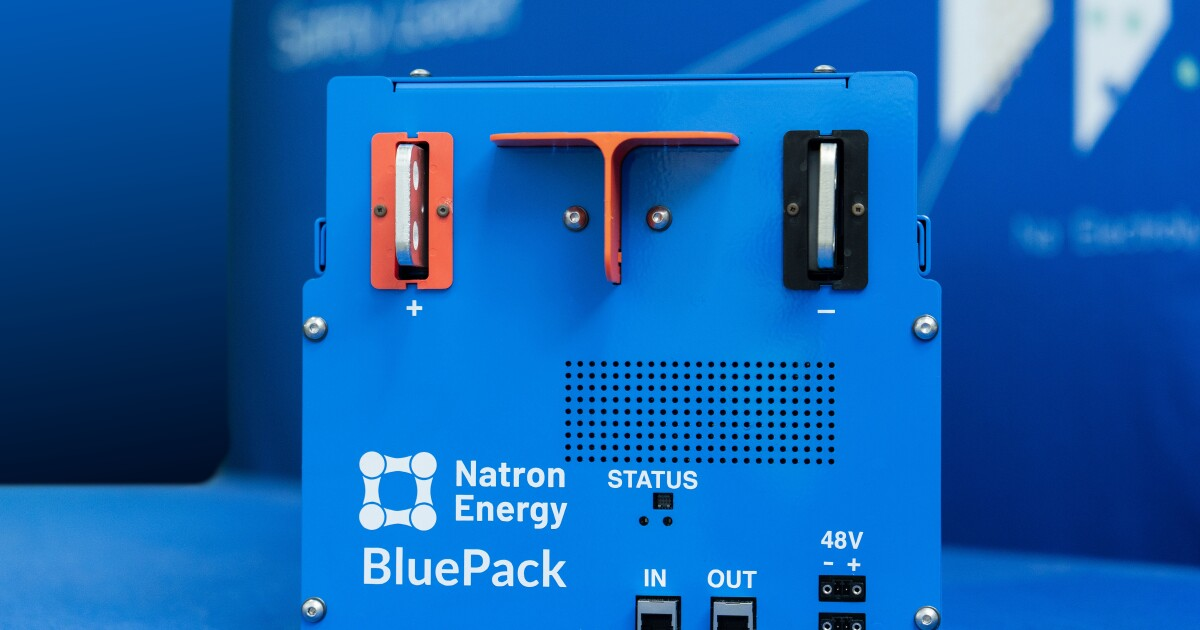non-flammable end use
Safe and stable chemistry
Oh neat, finally a non-explody and/or unstable battery lmao
Well, only relatively.
In order to work batteries need to have a certain amount of instability built in, on a chemical level. Them electrons have to want to jump from one material to a more reactive one; there is literally no other way. There is no such thing as a truly “safe and stable” battery chemistry. Such a battery would be inert, and not able to hold a charge. Even carbon-zinc batteries are technically flammable. I think these guys are stretching the truth a little for the layman, or possibly for the investor.
Lithium in current lithium-whatever cells is very reactive. Sodium on its own is extremely reactive, even moreso than lithium. Based on the minimal lookup I just did, this company appears to be using an aqueous electrolyte which makes sodium-ion cells a little safer (albeit at the cost of lower energy density, actually) but the notion that a lithium chemistry battery will burn but a sodium chemistry one “won’t” is flat out wrong. Further, shorting a battery pack of either chemistry is not likely to result in a good day.
I believe it is still better due to raw material availability?
It is definitely that. That’s kind of the point, actually. Sodium is easier to come by than lithium and does not require mining it from unstable parts of the world, nor relying on China.
nor relying on China
The appeal of China is largely in the size of the labor force. Whether this tech is more or less feasible than cobalt and lithium, businesses will still want to exploit the large volume of cheap Chinese labor in order to build them.
Nuclear bros hate this one simple trick.
I love nuclear but this new battery tech has me super excited
It increases the viability of renewable energy sources (especially solar) which makes me hella happy
I love nuclear
I’m not trying to be a dick but could you explain why?
@IchNichtenLichten
Not OP, but why not love it? It’s one of the cleanest, greenest, safest, and efficient power sources we have.
@GormadtSure, I get that. My priorities are clean energy that is as cheap as possible and nuclear just can’t compete on cost.
How about we regulate all the other power sources as heavily as we regulate nuclear?
This is an extremely unfair comparison, because nuclear has to do things (Even leaving aside the Nuclear part of it) that no other energy source does.
You know any coal supply chains that have to track each atom that they ever dig up?
And even leaving aside cost, what about other benefits?
How about we regulate all the other power sources as heavily as we regulate nuclear?
I can’t believe I even have to mention this but you realize that nuclear power has safety issues that wind and solar do not? Hence the regulation.
And even leaving aside cost, what about other benefits?
Such as?
50,000 cycles
Wow, a lifetime of 137 years at one cycle per day. This could make off-grid systems mainstream.
For real. It will take up a lot more space than lithium, but if it lasts way longer and should end up being cheaper, it would definitely be the winning choice. Solar array on the roof and a huge outdoor battery in a shed against the house and no more electric bill, ever.
Build your walls out of batteries and tile your roof with solar panels
Make firefighter’s jobs a lot easier. Hell you don’t even need a firetruck to tell the people outside “Yeah, it’s fucked, nobody’s coming out of there”
The mere fact that we can stop scorching the earth for lithium and cobalt is enough.
Now, we’ll scorch it for salt.
Well, we have nearly an endless supply of salt here on the Internet, should be an easy transition.








